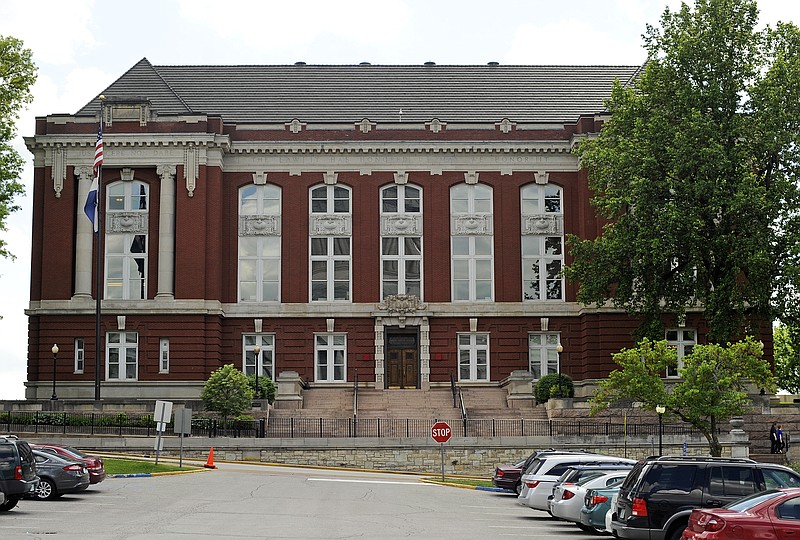When state lawmakers re-wrote the criminal code, did they intend to make it easier for some inmates to get paroled from prison?
That's a question the Missouri appeals court's Kansas City division wants the state Supreme Court to answer after ruling Tuesday on two different cases that questioned decisions made by Cole County Circuit Judge Dan Green.
The appeals court transferred the two cases under a Supreme Court rule that allows the transfer of a case "by order of a majority of the participating judges on their own motion" and also says the transfer "may be ordered because of the general interest or importance of a question involved in the case or for the purpose of reexamining existing law."
The high court doesn't have to take the cases, but can do its own review to determine if the reasons for a transfer make the cases appropriate for it to hear.
Before the new criminal code went into effect Jan. 1, 2017, state law required someone convicted of certain drug crimes and found to be a prior offender to be sentenced "to the authorized term of imprisonment for a class A felony, which term shall be served without probation or parole."
However, that language was repealed with the new criminal code, and two different inmates filed lawsuits in Cole County seeking to have the state release them on parole.
Dimetrious Woods was an inmate at the Jefferson City Correctional Center, serving a total of 29 years for attempted drug trafficking and armed criminal action, and he sued the state Corrections Department on May 10, 2017.
Gary Mitchell was an inmate at the Western Missouri Correctional Center in Cameron, serving a 15-year sentence from Jasper County, and sued Kenny Jones, as the head of the Probation and Parole Board, on May 11, 2017.
Both cases, ultimately, were assigned to Green, who tried them separately with different lawyers involved for the inmates and for the state.
Green ruled first in the Mitchell case, on Aug. 14, 2017, that Mitchell wasn't eligible for a change in his parole eligibility, because the 2017 law "does not apply retroactively" under the terms of a different law that wasn't changed.
That law, section 1.160, says: "No offense committed and no fine, penalty or forfeiture incurred, or prosecution commenced or pending previous to or at the time when any statutory provision is repealed or amended, shall be affected by the repeal or amendment, but the trial and punishment of all such offenses, and the recovery of the fines, penalties or forfeitures shall be had, in all respects, as if the provision had not been repealed or amended, except that all such proceedings shall be conducted according to existing procedural laws."
Green wrote: "Here, a sentence without parole requires no calculation because it came automatically with the sentence under section 195.295."
Then, on Nov. 3, Green granted Woods' request for a declaratory judgment and a parole hearing, citing two 2004 state Supreme Court rulings and saying, "Section 195.295 is not applicable to determining parole eligibility and (the Corrections Department) is hereby ordered to apply existing laws concerning (Woods') parole eligibility."
The losers in Green's decisions - Mitchell and the Corrections Department - filed appeals with the Kansas City court.
There, they were heard by two different three-judge panels.
In the Woods case, Judge Mark D. Pfeiffer wrote as part of a nine-page opinion: "Woods argued below, and the circuit court agreed, that the repeal of section 195.295 should be retroactively applied to make him eligible for parole when he was not (eligible) at the time of his sentencing.
"However, the repeal of section 195.295 falls within the scope of section 1.160's bar on retroactive application because the repealed statute was a part of the substantive law governing Woods' offense."
And, Pfeiffer and Appeals Court Judge Thomas H. Newton found, Green was wrong to grant Woods' motion.
However, the third judge on that panel, Alok Ahuja, disagreed, writing in a nine-page dissent: "The majority opinion fails to fully implement the Legislature's decision to allow offenders like Woods to be considered for parole."
Ahuja agreed the case should be sent to the Supreme Court for further review.
In the Mitchell case, Judge Cynthia Martin wrote an 11-page opinion on behalf of all three judges on the panel: "The statute that was repealed, section 195.295, fixed the penalty for a prior offender convicted of second-degree trafficking as of the date the offense was committed, and required imposition of a sentence within the range authorized for a class A felony without probation or parole.
"By the plain and unambiguous terms of section 1.160, the repeal of section 195.295 cannot be retroactively applied because to do so would affect a penalty or punishment imposed prior to the repeal.
"Our analysis need proceed no further than this plain reading of section 1.160."
The Mitchell appeals court panel said Green didn't make a mistake when denying Mitchell's request for a parole hearing.
However, in a footnote about transferring both cases to the Supreme Court, Martin noted Green had decided both cases, "though the judgments reached opposite and thus inconsistent conclusions about the retroactive application of repeal of section 195.295."
Both appeals court rulings said the Supreme Court should take the cases because "the issue presented is of general interest and importance, and is one that is likely to repeatedly recur given (the) overhaul of the criminal code."

